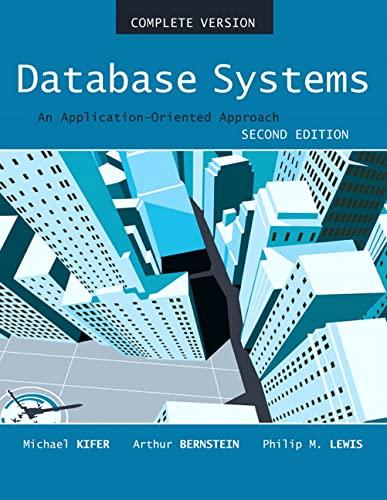Use 'MARS' to Solve the problem:
put macro.asm and second.asm in the same directory.
Add the following two macros in this macro.asm
1. swap_hi_lo ($temp1, $temp2) : This macro swap content of HI and LO register using specified temporary registers. For example 'swap_hi_lo($t0, $t1)' will swap content of HI and LO using $t0 and $t1 register. 2. print_hi_lo ($strHi, $strEqual, $strComma, $strLo) : This macro prints content of HI and LO register. It expects string address for string 'Hi', string '=', string ',' and string 'Lo'. You can use any temporary register inside macro definition to bring data out from HI and LO registers.
Assemble and execute second.asm. This should create following sample output
Enter number for Hi ? 32 Enter number for Lo ? 49 Before swapping Hi = 32 , Lo = 49 After swapping Hi = 49 , Lo = 32
============================================================
The given .asm document is as follow: macro.asm:

second.asm:

=================================================================
All the information are already shown above, just need help with two macros in macro.asm.
Please help, thank you!
# Macro : print_str # Usage: print_str(
) .macro print_str($arg) li $v0, 4 # System call code for print_str la Sal, $arg # Address of the string to print syscall # Print the string .end_macro # Macro : print_reg_int # Usage: print_reg_int () .macro print_reg_int($reg) li $v0, 1 # System call code for print_int move Sal, $reg # Integer to print syscall # Print the integer .end_macro # Macro : read int # Usage : read int () .macro read_int($reg) li $v0, 5 syscall move $reg, $v0 .end_macro # Macro : exit # Usage: exit .macro exit li $v0, 10 syscall .end_macro 1 include "./macro.asm" 3 .data 4 msgi: asciiz "Enter number for " 5 stri: .asciiz "Hi" 6 stro: asciiz "Lo" 7 strQuery: asciiz " ?" 8 strEqual: .asciiz " 9 strComma: .asciiz"," 10 strNewline: asciiz "n" 11 msg2: asciiz "Before swapping" 12 msg3: .asciiz "After swapping" 13 14 .text 15 globl main 16 main: # Get and store Hi value print_str(msgl) # Prints: Enter a number for print_str(strHi) # Prints: Hi print_str(strQuery) # Prints: ? read_int($t0) # Read integer into sto mthi $t0 # Move $t0 value to Hi # Get and store Lo value print_str(msgl) # Prints: Enter a number for print_str(strlo) # Prints: Hi print_str(strQuery) # Prints: ? read_int($t0) # Read integer into sto mtlo $t0 # Move sto value to Lo #print content of Hi and to print_str(msg2) # Prints: Before swaping print_hi_lo(strHi, strEqual, str Comma, strlo) # Prints: Hi = , Lo = print_str(strNewline) # Prints: newline # Swap the content svap_hi_lo($t0,$tl) #print content of Hi and Lo print_str(msg3) # Prints: After swaping print_hi_lo (strHi, strEqual, strComma, stro) # Prints: Hi = , Lo print_str(strNewline) # Prints: newline exit # Macro : print_str # Usage: print_str() .macro print_str($arg) li $v0, 4 # System call code for print_str la Sal, $arg # Address of the string to print syscall # Print the string .end_macro # Macro : print_reg_int # Usage: print_reg_int () .macro print_reg_int($reg) li $v0, 1 # System call code for print_int move Sal, $reg # Integer to print syscall # Print the integer .end_macro # Macro : read int # Usage : read int () .macro read_int($reg) li $v0, 5 syscall move $reg, $v0 .end_macro # Macro : exit # Usage: exit .macro exit li $v0, 10 syscall .end_macro 1 include "./macro.asm" 3 .data 4 msgi: asciiz "Enter number for " 5 stri: .asciiz "Hi" 6 stro: asciiz "Lo" 7 strQuery: asciiz " ?" 8 strEqual: .asciiz " 9 strComma: .asciiz"," 10 strNewline: asciiz "n" 11 msg2: asciiz "Before swapping" 12 msg3: .asciiz "After swapping" 13 14 .text 15 globl main 16 main: # Get and store Hi value print_str(msgl) # Prints: Enter a number for print_str(strHi) # Prints: Hi print_str(strQuery) # Prints: ? read_int($t0) # Read integer into sto mthi $t0 # Move $t0 value to Hi # Get and store Lo value print_str(msgl) # Prints: Enter a number for print_str(strlo) # Prints: Hi print_str(strQuery) # Prints: ? read_int($t0) # Read integer into sto mtlo $t0 # Move sto value to Lo #print content of Hi and to print_str(msg2) # Prints: Before swaping print_hi_lo(strHi, strEqual, str Comma, strlo) # Prints: Hi = , Lo = print_str(strNewline) # Prints: newline # Swap the content svap_hi_lo($t0,$tl) #print content of Hi and Lo print_str(msg3) # Prints: After swaping print_hi_lo (strHi, strEqual, strComma, stro) # Prints: Hi = , Lo print_str(strNewline) # Prints: newline exit








